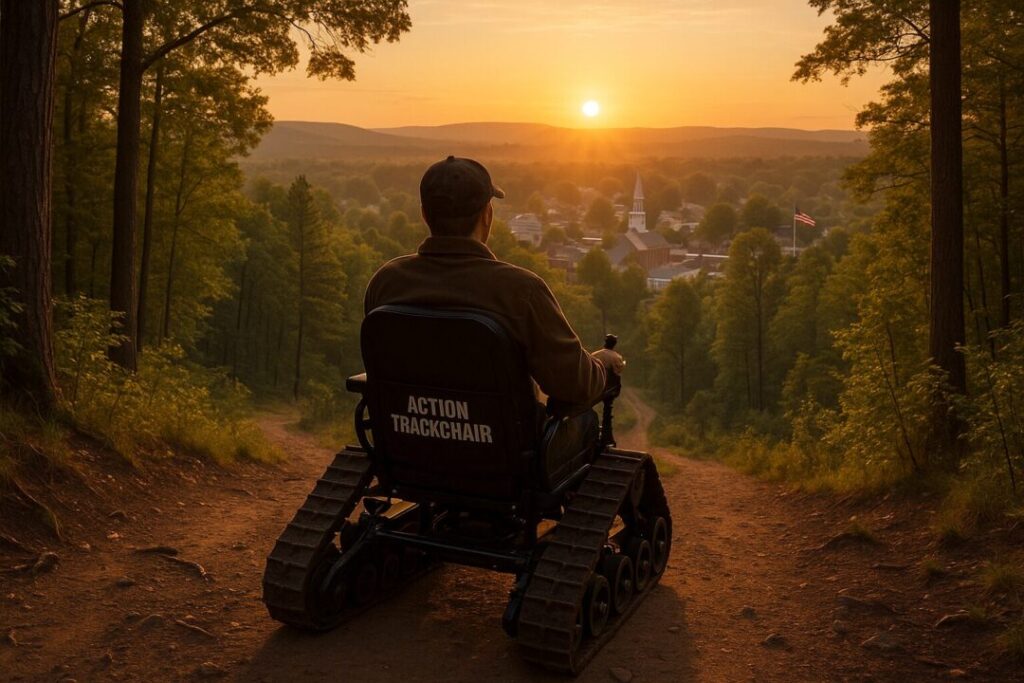Thirty-five years ago this week, President George H. W. Bush signed the Americans with Disabilities Act (ADA) into law.
It was a big moment – one that made clear that Americans with disabilities deserve the same opportunities as everyone else.
That’s a principle conservatives still believe in today: equal access, not special treatment.
Every American, no matter their physical ability, should have the chance to go to work, enjoy the outdoors, ride public transportation, and live life with dignity and independence.
A Landmark Law with Real Impact
The ADA outlawed discrimination based on disability in jobs, schools, transportation, and public places.
Today, ramps are more common than stairs, job listings mention accommodations, and public buses kneel to pick up wheelchair users.
Programs like the free Access Pass have helped over 500,000 disabled Americans visit federal parks. Cities now offer more curb cuts, elevators, and closed-captioning on public broadcasts.
A generation ago, those basics didn’t exist.
Thanks to these changes, many Americans with disabilities are working, traveling, and enjoying life more fully. As conservatives, we celebrate that progress.
But the Job’s Not Finished
Even with decades of effort, many places still fall short.
A 2024 GAO audit found that only 38% of federal lands meet accessibility standards. A lot of older buildings and transit systems still aren’t ADA-compliant.
But here’s the thing: Throwing more money at the problem isn’t the same as solving it.
The federal government has poured millions into accessibility upgrades; $55 million for national parks in 2024 alone.
But if 62% of those parks still fail to meet the law, what exactly are we paying for?
Private Solutions, Local Control
Instead of relying on Washington to fix everything, we should empower local communities and private innovators.
Take the Action Trackchair, for example. It’s an all-terrain wheelchair that lets users go fishing, hiking, or even hunting.
These weren’t invented by the government. They were made by entrepreneurs who saw a need and filled it.
Private rental companies are stepping in, too.
A 2023 MarketWatch report shows all-terrain wheelchair rentals have grown by 20% per year since 2020. That’s the free market doing what government can’t: meeting real needs quickly and efficiently.
And let’s not forget: States know their people better than D.C. does.
Nevada ranchers, park rangers, and county officials are in a better position to improve local trails and buildings than some federal agency halfway across the country.
Jobs and Independence Matter Most
One of the biggest challenges disabled Americans still face is employment.
The ADA was supposed to fix that, but the numbers haven’t moved much.
According to the Bureau of Labor Statistics, in 2024 only 23% of working-age people with disabilities had a job, compared to 66% of those without a disability.
We should be looking for ways to close that gap through skills training, remote work opportunities, and small-business support.
That’s where conservatives can lead: by focusing on empowerment, not red tape.
Equal Opportunity, Not Overreach
The ADA was never meant to give government more control. It was meant to open doors.
That’s where many conservatives draw the line: yes to accessibility, but no to endless regulations, lawsuits, and unfunded mandates that hurt small businesses or local governments.
The ADA’s 35th anniversary is a time to celebrate how far we’ve come and look honestly at what still needs work.
Disabled Americans should have every chance to live full, independent lives just like everyone else. That includes fair access to jobs, transportation, schools, and the outdoors.
But we need smart solutions, not bloated federal programs. Real progress will come when we trust families, states, and small businesses to lead the way.
This article was written with the assistance of AI. Please verify information and consult additional sources as needed.




